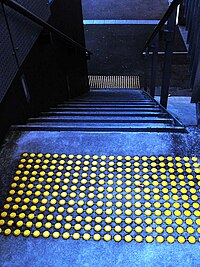
Photo from wikipedia
Pleasant touch provides emotional and psychological support that helps mitigate social isolation and stress. However, the underlying mechanisms remain poorly understood. Using a pleasant touch–conditioned place preference (PT-CPP) test, we… Click to show full abstract
Pleasant touch provides emotional and psychological support that helps mitigate social isolation and stress. However, the underlying mechanisms remain poorly understood. Using a pleasant touch–conditioned place preference (PT-CPP) test, we show that genetic ablation of spinal excitatory interneurons expressing prokineticin receptor 2 (PROKR2), or its ligand PROK2 in sensory neurons, abolishes PT-CPP without impairing pain and itch behaviors in mice. Mutant mice display profound impairments in stress response and prosocial behaviors. Moreover, PROKR2 neurons respond most vigorously to gentle stroking and encode reward value. Collectively, we identify PROK2 as a long-sought neuropeptide that encodes and transmits pleasant touch to spinal PROKR2 neurons. These findings may have important implications for elucidating mechanisms by which pleasant touch deprivation contributes to social avoidance behavior and mental disorders. Description The spinal circuit for pleasant touch Pleasant touch (e.g., cuddling, caressing, and patting) encodes positive hedonic information that facilitates emotional bonding, affiliative behavior, and the well-being of social animals. Despite its profound importance, how pleasant touch information is encoded and transmitted from sensory neurons to the spinal cord remains unknown. Liu et al. identified interneurons in laminae II of the spinal cord dorsal horn that express prokineticin receptor 2, as well as sensory neurons that express the ligand prokineticin 2 that are involved in the encoding and transmitting of pleasant touch. Genetic ablation of these neurons selectively abolished the place preference that mice developed in a pleasant touch–conditioned place preference test. However, the sensation of pain and itch remained unaffected in the mutant animals. —PRS A neuropeptide and spinal neural circuit that encode and transmit pleasant touch sensation have been identified.
Journal Title: Science
Year Published: 2022
Link to full text (if available)
Share on Social Media: Sign Up to like & get
recommendations!